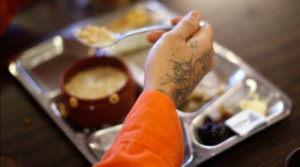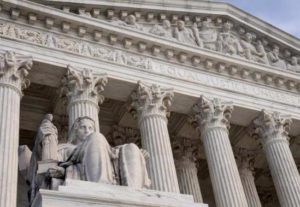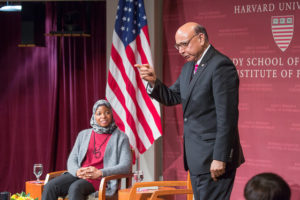
 Legal History of Religious Accommodation and Muslim Prisoners Guest contributor Bernard Freamon discusses the history of religious accommodation in prisons. “Four Muslim prisoners incarcerated in four prisons in the Michigan prison system just settled a federal lawsuit against prison officials. The lawsuit, Conway v. Purves, No. 13-cv-10271 (E.D. Michigan, 2017) alleged that the prisoners were denied sufficient nutrition when they fasted during Ramadan in 2011 and 2012. Although the Michigan prison system employs dietary policies allowing prisoners to fast during Ramadan, the prisoners claimed that the caloric intake provided to them fell far below national standards, resulting in the deprivation of a healthy diet resulting from their choice to follow Islamic ritual laws mandating a fast during daylight hours during the month of Ramadan. The prisoners alleged that this set of circumstances violated their constitutional right to the free exercise of religion, to be free from cruel and unusual punishment while incarcerated, and to equal protection of the laws, and that the prison officials also violated various federal statutory provisions…This settlement should not surprise anyone familiar with federal law or with the legal history of claims by incarcerated Muslims seeking recognition of their right to appropriately fast during Ramadan, in accordance with the dictates of Islamic law. In point of fact, there is an important history of claims by Muslim prisoners seeking the right to pray, fast, provide and receive charity, name themselves, marry, dress, employ hygienic practices, and engage in other behaviors mandated by Islamic ritual law. Consider the famous episode of Muhammad Ali and his use of Islam to appeal to social justice and to advance U.S. civil rights. Such claims can be traced back to the 1940’s, when Elijah Muhammad and members of the Nation of Islam were incarcerated for refusing to submit to draft board orders to join the U.S. military and fight in World War II, as in Clay v. United States. His fight was a prelude to the fight that these prisoners continue. In that sense, the actions of the Nation of Islam, and its campaign to achieve recognition and protection in America’s prisons, have been described by one author as ‘landmarks in American religious and legal history.'” Read more. Image credit: Lucy Nicholson/Reuters
Legal History of Religious Accommodation and Muslim Prisoners Guest contributor Bernard Freamon discusses the history of religious accommodation in prisons. “Four Muslim prisoners incarcerated in four prisons in the Michigan prison system just settled a federal lawsuit against prison officials. The lawsuit, Conway v. Purves, No. 13-cv-10271 (E.D. Michigan, 2017) alleged that the prisoners were denied sufficient nutrition when they fasted during Ramadan in 2011 and 2012. Although the Michigan prison system employs dietary policies allowing prisoners to fast during Ramadan, the prisoners claimed that the caloric intake provided to them fell far below national standards, resulting in the deprivation of a healthy diet resulting from their choice to follow Islamic ritual laws mandating a fast during daylight hours during the month of Ramadan. The prisoners alleged that this set of circumstances violated their constitutional right to the free exercise of religion, to be free from cruel and unusual punishment while incarcerated, and to equal protection of the laws, and that the prison officials also violated various federal statutory provisions…This settlement should not surprise anyone familiar with federal law or with the legal history of claims by incarcerated Muslims seeking recognition of their right to appropriately fast during Ramadan, in accordance with the dictates of Islamic law. In point of fact, there is an important history of claims by Muslim prisoners seeking the right to pray, fast, provide and receive charity, name themselves, marry, dress, employ hygienic practices, and engage in other behaviors mandated by Islamic ritual law. Consider the famous episode of Muhammad Ali and his use of Islam to appeal to social justice and to advance U.S. civil rights. Such claims can be traced back to the 1940’s, when Elijah Muhammad and members of the Nation of Islam were incarcerated for refusing to submit to draft board orders to join the U.S. military and fight in World War II, as in Clay v. United States. His fight was a prelude to the fight that these prisoners continue. In that sense, the actions of the Nation of Islam, and its campaign to achieve recognition and protection in America’s prisons, have been described by one author as ‘landmarks in American religious and legal history.'” Read more. Image credit: Lucy Nicholson/Reuters
 CASE: Conway v. Purves (E.D. Mich. 2013): Dietary Accommodations during Ramadan Four Muslim prisoners brought a suit against the Michigan Department of Corrections, claiming that the meals that were provided to them during the month of Ramadan provided inadequate nutritional and caloric value. They cited violations of their First and Eighth Amendment rights. Read more. Image credit: J. Scott Applewhite | Star Tribune
CASE: Conway v. Purves (E.D. Mich. 2013): Dietary Accommodations during Ramadan Four Muslim prisoners brought a suit against the Michigan Department of Corrections, claiming that the meals that were provided to them during the month of Ramadan provided inadequate nutritional and caloric value. They cited violations of their First and Eighth Amendment rights. Read more. Image credit: J. Scott Applewhite | Star Tribune
 EVENT: Khizr Khan Speaks at the Kennedy School Retaliation Claim Khizr Khan spoke at the Harvard Kennedy Schoolon February 15th, discussing the recent election among other topics. HLS professor and SHARIAsource founding editor-in-chief Intisar Rabb moderated the forum, asking Khan to share his personal insights on issues of public policy. He focused on the Constitution as a guiding force for his moral compass, especially in times of personal conflict. Watch here. Image credit: Harvard Center for Public Leadership
EVENT: Khizr Khan Speaks at the Kennedy School Retaliation Claim Khizr Khan spoke at the Harvard Kennedy Schoolon February 15th, discussing the recent election among other topics. HLS professor and SHARIAsource founding editor-in-chief Intisar Rabb moderated the forum, asking Khan to share his personal insights on issues of public policy. He focused on the Constitution as a guiding force for his moral compass, especially in times of personal conflict. Watch here. Image credit: Harvard Center for Public Leadership
See the full newsletter.

